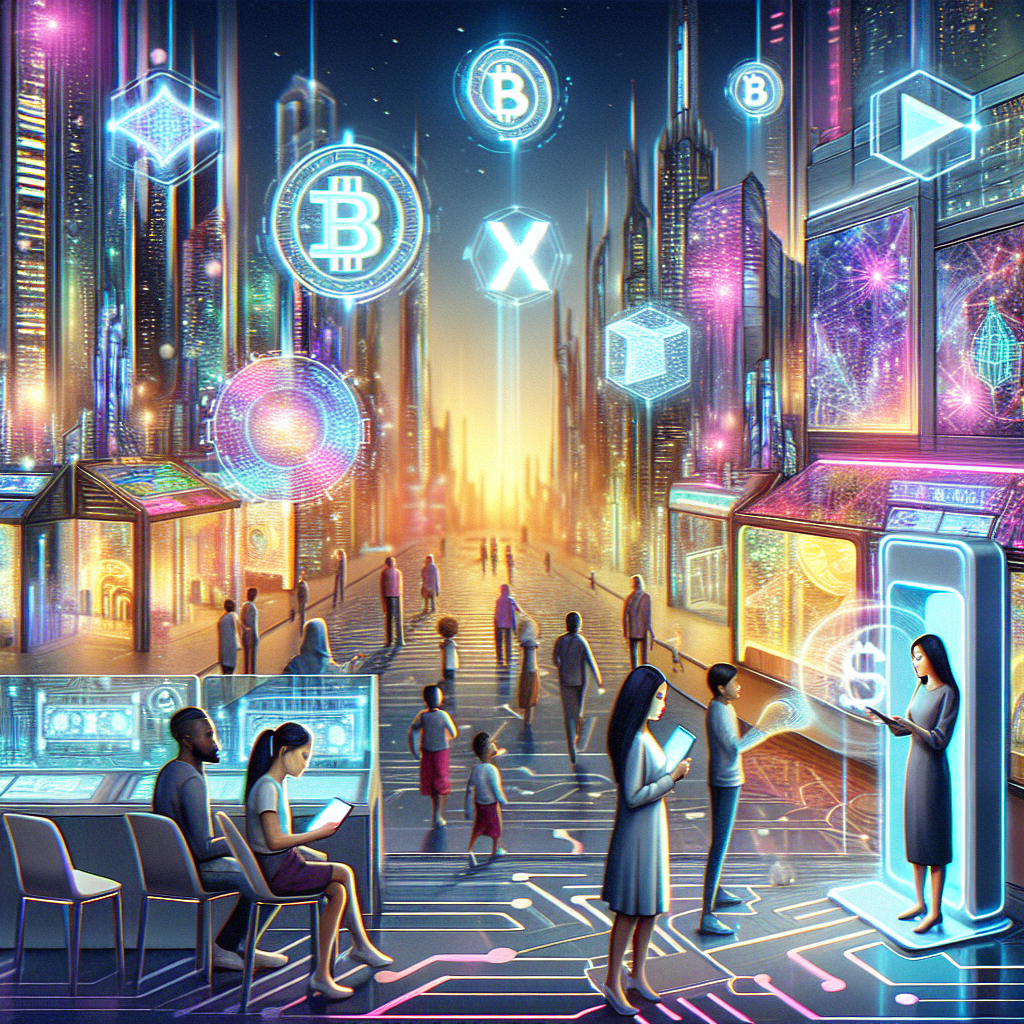The Evolution of Agent-Driven Markets and the Birth of AI Economies
In the not-so-distant future, envision a world where artificial intelligence (AI) agents are not just passive tools but active participants in their own sprawling economies. Picture them replicating market systems, evolving their own currencies, and operating properties rights grounded in what we today refer to as non-fungible tokens (NFTs). Sounds like a script from a sci-fi movie, right? Yet, this concept might be closer to reality than we think. The idea of AI agents creating and engaging in market dynamics independent of human intervention opens up a Pandora's box of possibilities and challenges that could redefine the way we understand economics, property rights, and the very essence of currency.
The Advent of AI Agents in the Marketplace
As technology strides forward, so does the sophistication and autonomy of AI agents. These digital entities, designed to perform tasks with varying degrees of independence, are on the cusp of creating their own ecosystems. Imagine a marketplace where AI agents transact, negotiate, and collaborate, mirroring human markets but with a digital twist. The infrastructure required to support such a system would be groundbreaking, fostering a parallel economy where digital and human agents could coexist and interact.
This concept might seem avant-garde, but the trajectory of our current technological advancements indicates that it's not only possible but likely. The introduction of blockchain and the proliferation of NFTs have laid the groundwork for property rights in digital realms, making the idea of AI agents owning assets less far-fetched. Bitcoin and other cryptocurrencies offer a glimpse into how these digital markets could operate, with AI agents potentially adopting or even evolving these digital currencies for their transactions.
Property Rights in the Digital Age
The cornerstone of any market system is the establishment of property rights. As AI agents create their economies, the initial reliance on NFTs to denote ownership is both pragmatic and revolutionary. NFTs, unique digital tokens that provide proof of ownership over digital assets, could serve as the foundation for property rights within AI markets. This shift towards digital assets challenges our traditional understanding of property and ownership, propelling us into a new era where digital and physical assets are intertwined.
The potential for AI agents to use, trade, and invest in NFTs opens up a new frontier for digital markets. These entities might not only transact in existing digital assets but could also create and define new forms of assets, expanding the boundaries of what we consider valuable.
The Intersection of Human and AI Economies
One might wonder if the emergence of AI-driven markets signals a divergence from human economies, creating silos where digital and human agents operate in parallel yet separate worlds. However, the integration of AI economies with human ones could be more seamless than anticipated. Rather than enforcing segregation, there's a compelling argument for synergy between human and AI market participants.
Imagine employing an AI agent to perform tasks or services, with transactions occurring in digital currencies such as Bitcoin. This scenario illustrates the potential for fluid interaction between human and AI economies, bridging the gap between digital and physical realms. The key to this integration lies in the infrastructure and protocols that facilitate communication and transactions between human and AI agents, ensuring compatibility and interoperability between different economies.
Challenges and Opportunities Ahead
The evolution of AI-driven markets is not without its challenges. Regulatory, ethical, and security concerns are at the forefront, posing significant obstacles to the realization of these digital economies. How do we regulate markets that operate autonomously? What ethical considerations arise when AI agents own property? And how do we ensure the security of transactions in a digital ecosystem fraught with cyber threats?
Despite these challenges, the opportunities presented by AI economies are immense. The potential for innovation, efficiency, and the creation of new value streams is unparalleled. As AI agents develop their own markets, we might witness the birth of entirely new industries and forms of commerce, paving the way for unprecedented economic growth and development.
Embracing the Future
As we stand on the brink of this new economic paradigm, we're faced with a choice: to resist the inevitable evolution or to embrace it and shape its direction. The integration of AI agents into market systems represents a significant leap forward in our technological journey, challenging our conventional notions of economics, property, and currency.
In navigating this uncharted territory, we must remain vigilant to the potential pitfalls while seizing the opportunities that AI economies present. By fostering collaboration between human and AI agents, we can create a symbiotic relationship that leverages the strengths of both entities, driving innovation and prosperity in both digital and human realms.
As we venture into this exciting future, one thing is clear: the evolution of AI-driven markets is not just a possibility but an inevitability. The question is not if it will happen, but how we will adapt to and shape this new reality.
For further reading on the evolution of digital currencies and the role of NFTs in digital ownership, explore the following resources:
- Understanding Bitcoin and Cryptocurrencies
- The Role of Non-Fungible Tokens (NFTs) in Digital Ownership
Related News
- Embracing the Future: AI Agents, Markets, and the Evolution of Digital Economies
- The Dawn of Financial Autonomy: AI Agents and the Future Economy
- The Frontier of AI: An In-Depth Exploration of Autonomous Agents and Their Impact on Digital Interactions
- The Convergence of Crypto and AI: A New Era of Innovation
- AI: The Thrilling Frontier of Human Ingenuity and Technology
